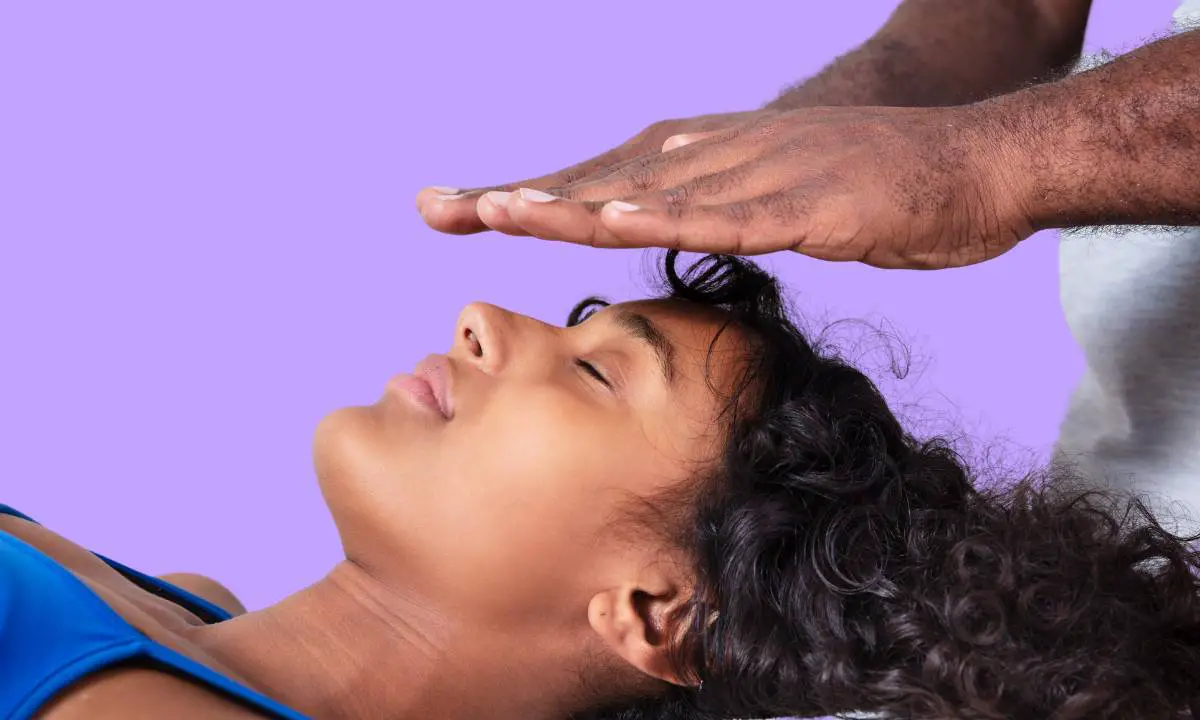Reiki is an ancient Japanese healing technique that uses life force energy to promote balance and well-being.
It works by channeling energy through the practitioner’s hands and into the body of the recipient, helping to restore physical, mental, and spiritual balance.
The practice involves five main principles – just for today, be kind to yourself and others, do not worry, work hard, and be grateful – meant to help practitioners stay mindful during a session and focus on their own well-being as well as that of their clients.
When used correctly, Reiki therapy can have profound effects on emotional health including reducing stress levels, improving sleep quality, and increasing energy levels.
However, it is important to understand the potential after effects of Reiki before beginning a session so that you can properly prepare yourself for any changes that may occur afterward.
What is Reiki and What is it Good For?
Reiki energy therapy is an ancient Japanese healing technique that uses life force energy, or universal energy, to promote physical, mental, and spiritual balance.
It has its roots in Buddhist teachings and it was first developed around 100 years ago, by mikao usui in the 1920s.
Reiki practitioners believe that this energy is found all around us and when channeled through their hands it can penetrate physical and emotional ailments.
As a form of holistic healing, Reiki healing focuses on promoting overall well-being by treating the mind, body, and spirit as one.
When used correctly, Reiki can have profound effects including reducing stress levels, increasing relaxation, improving sleep quality, and managing pain.
It’s a non-invasive treatment with few known side effects which makes it ideal for those who are looking for alternative therapy in addition to traditional medicine.

Reiki After Effects
After a Reiki session, the energy in the body shifts and moves around which can lead to a range of sensations such as tingling, bubbling, or zinging.
People may also experience highly emotional surges or mood swings and intense fatigue, feeling drained of energy, or flu-like symptoms.
They might also have changes in digestion including increased gas/burping.
These after-effects are usually mild and temporary, lasting anywhere from minutes to days.
It is important to remember that these after-effects are an indication that your body is healing, so it is important to rest and drink plenty of water.
In some cases, people may experience a healing crisis which is a period of acute physical and emotional symptoms caused by the body releasing toxins stored from previous traumas and illnesses.
Common symptoms of a healing crisis include:
- headaches,
- exhaustion,
- feverishness,
- irritability and emotional instability.
To cope with a healing crisis it is important to:
- get rest when possible; drink plenty of water;
- talk to your Reiki practitioner;
- allow yourself time for self-care activities;
- trust your process
- be patient with yourself;
- honor your feelings;
- monitor your sleep patterns
- maintain healthy routines such as eating regularly and exercising if you feel well enough to do so
- focus on deep breaths when needed
- visualize energy flowing through your body
- journal if desired
- take breaks from overstimulating activities
- meditate if possible; support yourself emotionally by surrounding yourself with positive energy like friends or family members who understand what you’re going through.
How to Choose a Reiki Practitioner
If you are looking for a qualified and experienced Reiki practitioner, it is important to do your research.
There are many factors to consider when choosing a Reiki practitioner or reiki master, such as their training, certification, and experience.
When looking for a reputable practitioner, it is recommended that you ask for referrals from friends or family who have had positive experiences with their own Reiki practitioners.
Additionally, you should check the credentials of any potential practitioners to ensure they are certified and experienced in the field.
Here are some tips for finding the best Reiki practitioner for you:
- Look at the practitioner’s qualifications.
- Ask about the practitioner’s experience.
- Examine the practitioner’s capacity and demeanor.
- Ask if they can trace their lineage back to traditional Reiki practices.
- Consider what type of Reiki practice they offer (in-person or online).
- Ask for referrals from friends or family who have had positive experiences with their own Reiki practitioners.
- Check the credentials of any potential practitioners to ensure they are certified and experienced in the field.
- Trust your intuition – go with the one you like best!
What to Expect During a Reiki Session
Reiki is an ancient form of energy healing that has been around for centuries.
It involves the transfer of energy from a practitioner to a recipient in order to bring about physical, mental, and emotional balance.
A typical Reiki session can last anywhere between 45 minutes to an hour, and here’s what you can expect:
The role of the practitioner is to channel life-force energy through their hands and into the recipient’s body, allowing them to heal both physically and emotionally.
The recipient will lie down on a massage table or sit comfortably in a chair during the session, while the practitioner uses one or both hands to perform gentle hand motions on different areas of the body.
During the session, you may experience some physical sensations such as heat or tingling in certain areas of your body where the practitioner’s hands are placed.
You may also feel deeply relaxed or become emotional during this process as it helps unblock any stagnant energy that may be present in your body.
At the end of each session, the recipient should feel restored and recharged after having received positive energy from the practitioner.
Scientific Evidence for Reiki
Reiki has been used for centuries as an alternative form of healing, however, scientific research on its effectiveness is still in the early stages.
Different studies have looked at how Reiki can help reduce pain and anxiety, as well as improve physical and emotional well-being.
While some research has shown promising results, there are still some limitations to these studies that need to be taken into account before drawing any conclusions.
One criticism of the existing studies is that they often rely on patient self-report or observational assessments rather than objective measures.
Variations in practitioner technique and lack of a control group make it difficult to determine whether any observed changes are due to Reiki itself or something else.
This raises doubts about the efficacy of Reiki in clinical settings and has led to controversy over its effectiveness.
Overall, more research is needed to further explore the potential benefits of Reiki therapy, but with proper precautions taken into consideration, current evidence suggests that it can be a valuable tool for improving one’s overall well-being.
Disadvantages of Reiki
While Reiki can be a helpful form of energy healing, there are some potential downsides to consider.
Firstly, the industry is largely unregulated, which may lead to practitioners with varying levels of expertise administering treatments.
Furthermore, the lack of scientific backing and limited research into its efficacy can make it difficult for people to evaluate whether or not it will be effective for them.
Additionally, since Reiki does not target specific conditions or illnesses, it cannot be used as a substitute for traditional medical treatment.
It is also important to note that anyone wishing to practice Reiki must go through an attunement process in order to conduct treatments.
Lastly, many insurance providers do not cover Reiki treatments like they do other forms of healing such as conventional therapy or acupuncture.
Conclusion: After effects of reiki
Reiki is an ancient form of energy healing that has been used for centuries and can help bring physical, mental, and emotional balance.
It involves a practitioner transferring life-force energy through their hands into the recipient’s body.
During a Reiki session, the recipient may feel physical sensations such as heat or tingling and may also become emotional as the practitioner works to unblock any stagnant energy within their body.
Although there is some scientific evidence suggesting that Reiki can help reduce pain and anxiety, more research is needed before conclusions can be drawn.
Due to its unregulated nature and lack of insurance coverage, it’s important to consider potential risks associated with Reiki before undertaking any treatments.
Nevertheless, with the proper precautions taken into consideration, Reiki can be a valuable tool for improving overall well-being.
Overall, it is important to remember that everyone’s experience with reiki may be different and some people may not feel any immediate effects.
It is best to discuss potential side effects with a qualified practitioner before receiving treatment.
In the long run, reiki can be beneficial to those who are open to its energy, and it can help bring balance and harmony to the body.




